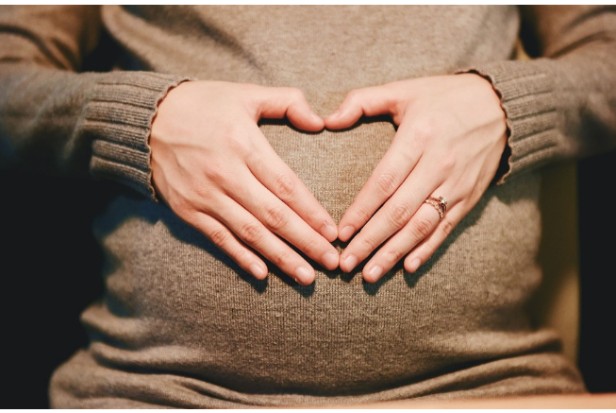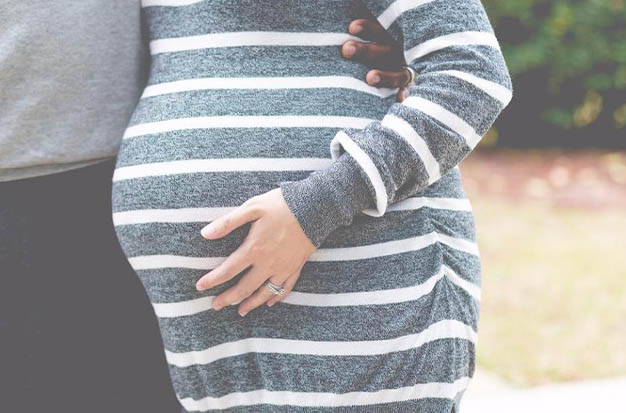A person thinking about having an abortion might be concerned about how it might affect subsequent pregnancies. Most of the time, having an abortion in the past has no bearing on fertility or subsequent pregnancies. A prior abortion may, in rare instances, cause complications during a subsequent pregnancy.
The majority of women don’t experience difficulties getting pregnant after an abortion, and the procedure typically has no negative effects on the health of a future pregnancy or fetus. However, it’s normal to have worries, and you might wonder how long you have to wait before trying again if you decide to end a pregnancy for medical reasons and can do so where you live. Here are the facts.
Does Abortion Have An Impact On Subsequent Pregnancies?
A prior pregnancy does not increase the risk of infertility after the procedure, according to the American College of Obstetricians and Gynecologists (ACOG).
The risk of pregnancy complications for those who do become pregnant after an abortion is low.
Only 2 of the 54,911 abortions performed on the 50,273 women who participated in one study resulted in complications.1% of cases and serious complications occurred in 0.23% of cases.
Can You Become Pregnant After Having An Abortion?
Yes, it is possible to become pregnant again after an abortion. According to the American College of Obstetricians and Gynecologists (ACOG), getting an abortion typically has no impact on fertility or a woman’s risk for other health problems. In addition, studies have shown that having an abortion doesn’t significantly raise the risk of future pregnancy problems or miscarriages.
How Soon Can You Become Pregnant After An Abortion?
Your menstrual cycle will start over after an abortion. Ovulation, when an egg is released from the ovary, typically happens around day 14 of a 28-day menstrual cycle. You will therefore probably ovulate a few weeks after having an abortion, according to this.
In other words, it’s physically possible to become pregnant again if you engage in unprotected sex within a few weeks of the procedure, even if you haven’t started your period yet.
Nevertheless, since not everyone has a 28-day cycle, the precise timing may change. Some women’s menstrual cycles are already shorter by nature. This implies that they might start ovulating just eight days after the procedure and might even become pregnant sooner.
The amount of time before you ovulate also depends on how far along you were with your pregnancy when you had the abortion. After the procedure, pregnancy hormones may continue to circulate in your body for a few weeks. Ovulation and menstruation will be delayed as a result.
Symptoms of pregnancy following an abortion will be similar to symptoms of any pregnancy. They include:
- tender breasts
- sensitivity to smells or tastes
- nausea or vomiting
- fatigue
- missed period
Take a home pregnancy test if six weeks after the abortion you haven’t had a period. Call your doctor if the results are positive. To find out if you are pregnant or still have pregnancy hormones from an earlier pregnancy that was aborted, a blood test can be performed.
How Long Should You Wait To Try To Get Pregnant After Having An Abortion?
You may be considering trying to get pregnant again soon if you had to terminate a pregnancy due to complications or a health issue. After a miscarriage, a woman is typically physically able to become pregnant once her periods start up again (although, as mentioned earlier, it’s still possible to get pregnant before your period resumes).
Before deciding to start, it is wise to discuss your options with your doctor in light of that general timeline. A lot of your fears about trying again may be reduced once you receive confirmation that your body is prepared. Additionally, it’s an opportunity to get a pre-pregnancy checkup and take care of any underlying health issues to ensure the healthiest pregnancy possible.
There is also the issue of when you feel emotionally prepared, which may take a little longer. It’s common to need time to grieve and process your loss before you feel ready to move forward when you decide to end a pregnancy for medical reasons.

Pregnancy Tests’ Accuracy After Abortion: How Long After?
Human chorionic gonadotropin (hCG) is a hormone that pregnancy tests look for in high concentrations. After an abortion, pregnancy hormones start to decline quickly but don’t immediately return to normal levels.
The time it takes for hCG levels in the body to fall below those that a pregnancy test can detect can range from 16 days to 2 months. It doesn’t matter if you’re still pregnant or not if you take a pregnancy test during that time period, you’ll probably come back positive.
Visit a doctor if you believe you may be pregnant again soon after having an abortion. In place of using an OTC pregnancy test, they can offer a blood-based pregnancy test. To verify that the pregnancy has ended, they can also perform an ultrasound.
Are There Any Dangers Associated With Getting Pregnant After An Abortion?
The risks of abortion are typically negligible and won’t prevent you from getting pregnant or having a healthy pregnancy in the future. However, there are some important things to consider as you’re deciding about trying to get pregnant again:
- Low birth weight or premature birth risk may be slightly increased by surgical abortion. The likelihood of complications rising is extremely low. Get in touch with your doctor if you have any worries.
- Multiple surgical abortions could have an effect on fertility. The possibility of Asherman syndrome, a rare condition characterized by uterine lining scarring, exists if one has had more than one surgical abortion. It might be more difficult to conceive as a result of these scars.
- To feel emotionally prepared, you might need some time. Before attempting to conceive once more, it is advisable to give yourself enough time to properly mourn and process your loss.
- It’s worthwhile to take precautions to have the healthiest pregnancy possible. Every factor, such as your genetics, medical history, or age, that may raise the possibility of pregnancy complications or fetal health issues is out of your control. Talking with your doctor about any issues you can manage to maintain your health and the health of your unborn child is always worthwhile. That entails taking care of any underlying medical conditions, such as diabetes, STDs, hypertension, or thyroid issues.
When To See A Doctor?
Even though some pain or bleeding is normal after an abortion, you should still consult a doctor if you have any concerns.
You should see a doctor if you have:
- pain or bleeding that doesn’t improve after a few days
- a high temperature (fever) or flu-like symptoms
- unusual vaginal discharge
Additionally, there is a slight possibility that the procedure won’t be successful and you will remain pregnant after having an abortion. You should get in touch with your doctor or the facility that provided you with treatment if your period doesn’t return, you still feel pregnant, or you exhibit signs of pregnancy.
How To Get Pregnant After An Abortion?
Within two weeks of abortion, women may become pregnant. There is typically no medical justification to put off trying to conceive for those who are ready to become pregnant once more unless a doctor advises otherwise.
After having an abortion, a woman does not need to take any special precautions in order to get pregnant.
Some medical professionals advise delaying until the first menstrual period has passed, though. This will make it simpler to predict when the subsequent pregnancy will give birth.
Before trying to get pregnant again, those who have had medically necessary abortions may want to undergo a thorough medical evaluation. A checkup can help identify whether a person will confront the same problems during subsequent pregnancies.
Conclusion
An abortion typically has no effect on fertility or subsequent pregnancies. Within two weeks of having an abortion, ovulation and pregnancy are both possible.
Rarely, a surgical abortion may result in cervix damage or uterine wall scarring. Reproductive difficulties could result from these issues. They may also raise the possibility of future preterm birth, low birth weight, or pregnancy loss.
Abortions performed surgically or medically are both low risk, though. The best approach will depend on a person’s preferences and the stage of pregnancy. This choice can be aided by consulting a medical expert.
Consult a healthcare provider if you have any queries or worries about getting pregnant after an abortion.



